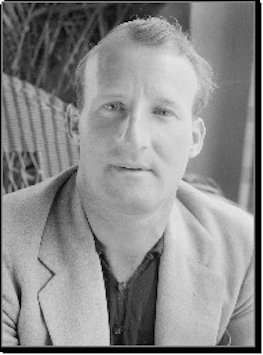
Sport: Baseball
Born: October 16, 1900
Died: May 15, 1971
Town: Pennsville, New Jersey
Leon Allen Goslin was born in October 16, 1900 in Salem and grew up on a farm in Pennsville, NJ, near Fort Mott. He would go by the nickname “Turk” until he reached the major leagues, when a sportswriter noticed how he waddled under fly balls in the outfield and started calling him “Goose.” The name stuck, and Leon never seemed to mind.
As a teenager, Goose’s live right arm arm helped him get a job at the local DuPont plant, where he pitched for the company team. He struck up a friendship with a young umpire named Bill McGowan. McGowan helped him sign his first pro contract. Later, when Goose was in the majors, he helped McGowan make it to the big leagues. Both ended up in the Hall of Fame,
After batting .390 in 1921 with the Class-C Columbia Comers, Goose was signed by the Washington Senators and made his debut for the club on September 16th, a month before turning 21. He patrolled leftfield for the Senators throughout the 1920s with varying degrees of success.
At the plate, however, Goose had few equals. He was a consistent .300 hitter with tremendous power from the left side. On several occasions he launched balls measured at over 500 feet. His home run totals were low because of the Senators’ cavernous home ballpark, but he was right around 60 extra-base hits every season. As a clutch-hitter, Goose was one of the best. He led the league in RBIs in 1924, as Washington won its first American League pennant.
In the World Series against the Giants that fall, Goose homered to help the Senators win Game 2 and Game 4. They beat New York in a wild seventh game to claim the championship. One year later, Goose and the Senators were back in the World Series, this time against the Pirates. Washington blew a 3 games to 1 lead and lost.
In 1928, Goose injured his arm fooling around with a shot put. He could barely get his throws back to the infield, but he continued to murder the ball at the plate. He finished with a .379 average—one point better than Heinie Manush of the Browns—to win the batting title.
A true natural athlete and sharp competitor, Goose could never resist a test of non-baseball skill. Once he challenged New Jersey’s skeet-shooting champion and defeated him by hitting 50 of 50 targets. In a golfing match against pitcher Walter Johnson, the two Hall of Famer competitors got into an argument about scoring. Their feud eventually led to Goose being dealt to the St. Louis Browns during the 1930 season. Ironically, the player the was traded for was Manush.
Goose returned to Washington in 1933 for one season. But what a season it was. He helped the club capture the pennant—the last for the franchise until it moved to Minnesota in the 1960s. In 1934, Goose was traded to the Tigers, who were desperate for a left-handed bat to complement righty slugger Hank Greenberg. Goose provided veteran guidance and kept his teammates loose on the field and in the clubhouse. He also batted .300 and knocked in 100 runs for the 10th time in his career. The Tigers won their first pennant since 1909.
Detroit lost the 1934 World Series to the Cardinals in seven games. However, they successfully defended their pennant and got another crack at the championship in 1935. Heading into the opening game, Goose sensed that his teammates were a little tight. Rather than bringing a rabbit’s foot into the locker room for good luck, he brought a live rabbit. This cut the tension as the series began and the Tigers beat the Cubs 4 games to 2. With the final game tied 3–3 in the bottom of the 9th inning, Goose came to the plate with two outs and a runner on second. He pulled a single to right to plate the winning run. Before the decisive hit, Goose turned to the home plate umpire and said, “Go in and get your shower. I’m gonna dust one.” The umpire was none other than Bill McGowan.
Goose’s series-winning single went down in history as the “$50,000 Hit.” He made a little more history the following year when he batted .315 with 24 homers and 125 RBIs as a 35-year-old. It was his last standout season.
Goose played one more year in Detroit before being released. In 1938, the Senators brought Goose back for a third and last hurrah. He struggled at the plate and wrenched his back on one of his patented all-or-nothing swings. He finished his big-league career with 2,735 hits, including 500 doubles, 173 triples and 248 home runs. His lifetime average was .316 and he had 1,609 RBIs.
Goose wasn’t quite through with baseball. He returned home to New Jersey to become player-manager of the Trenton Senators in 1939 and 1940. He managed part of 1941 and then quit to tend to his family farm. He also ran a boat-rental business on Delaware Bay. After an inexplicably long wait, Goose was voted into the Hall of Fame by the Veterans Committee in 1968. He died three years later at the age of 70.